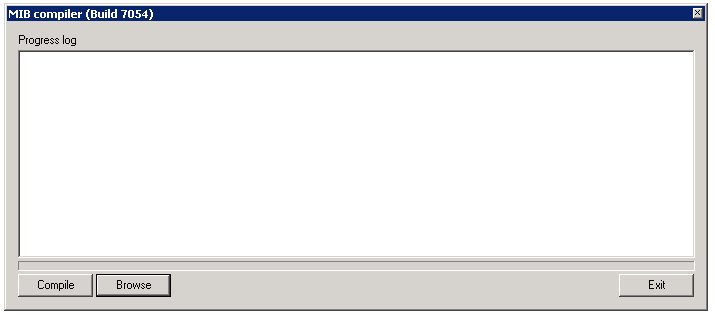By using the MIB compiler you can compile text MIB files into a binary format that Network Monitor can read. Compiling MIB files requires understanding about how MIB files work as well as a general understanding of SNMP and MIB objects. A number of different RFC documents outline the fundamental base that all other MIB files are based on.
Note: The community name, SNMP version, and port used used by Network Monitor to connect to an SNMP asset is set on the Authentication tab of an asset node. The asset node may inherit this setting from a parent node. See the Installation Checklist.
As an example, this is the compile order of a CISCO ® product MIB.
SNMPv2-SMI.mibSNMPv2-TC.mibSNMPv2-MIB.mibRFC1213-MIB.mibIF-MIB.mibCISCO-SMI.mibCISCO-PRODUCTS-MIB.mibCISCO-TC.mibThe first 5 files in this example are common for most product MIB files, and are included in the default knm.mib
Warning: All of these files must be compiled at the same time, otherwise the MIB compiler fails due to unresolved symbols.
Contents of the default KNM MIB file
The default knm.mib
iso.org.dod.internet.directoryiso.org.dod.internet.mgmtiso.org.dod.internet.experimentaliso.org.dod.internet.privateiso.org.dod.internet.securityThe file is located in the \<Kaseya_Installation_Directory>\KNM\mibs
Download and Run the MIB Compiler
Compiling a MIB file

<Kaseya_Installation_Directory>\knm\mibcompiler.exe*.mibknm.mibKNM\mibs folder of the Network Monitor host machine and double click it to select it.*.mib*.dat*.dat*.datKNM\mibs folder.